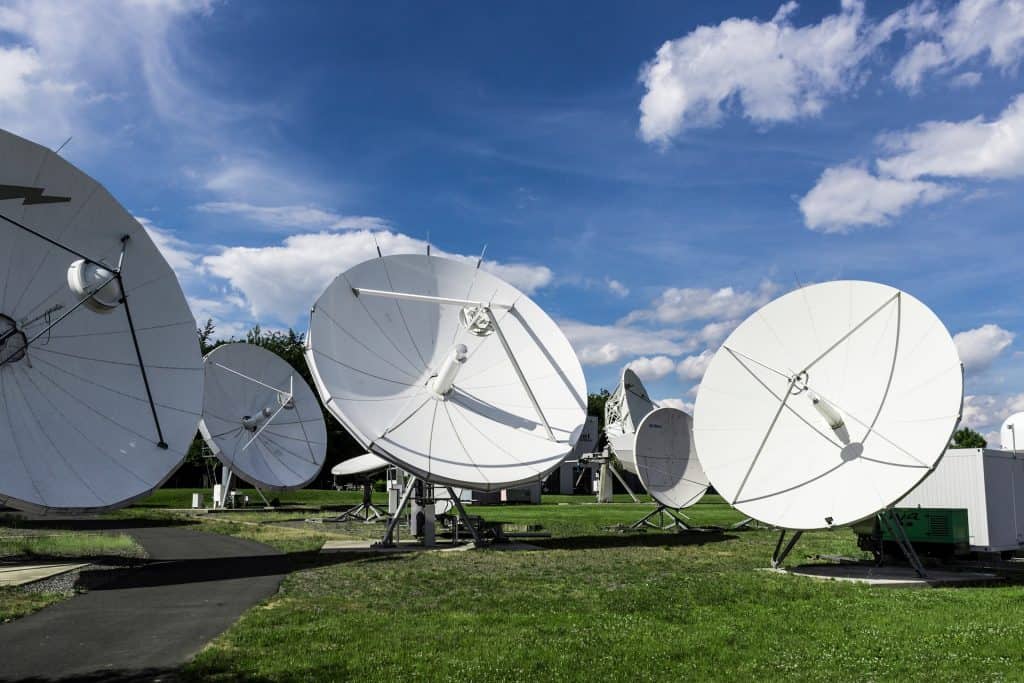Are you looking for information on the latest satellite technology and communications advances? Satellite technology has been around for decades, and during that time, it has seen impressive advances. This blog post will look at nine of the most significant advances in satellite technology and communications. From increased bandwidth to smaller satellites, these advancements are changing how we use satellite technology. Keep reading to learn more!
More Satellite Products on the Market
One of the most obvious advances in satellite technology is the sheer number of products on the market. In the early days of satellite technology, only a handful of companies offered products and services. Today, there are hundreds of companies selling satellite components that power everything from broadband internet to global positioning systems (GPS). This increase in competition has led to lower prices and better products for consumers.
The increased competition has driven down prices and improved the quality of satellite products. It’s now easier than ever to find a satellite product that meets your specific needs. For instance, if you’re looking for a high-powered satellite dish for your home, there are plenty of options. The same is true if you need a small, lightweight satellite antenna for your car.
Greater Mobile Accessibility
One of the most important advances in satellite technology is the increased accessibility of mobile communications. In the past, satellite phones were bulky and expensive, making them impractical for many people. However, newer generations of mobile satellite devices are smaller and more affordable, making them a viable option for people in remote areas or those who travel frequently.
In addition to increased accessibility, mobile satellite devices are also becoming more reliable. Newer devices use various technologies to stay connected, even in areas with limited or no cell phone coverage. People who rely on satellite phones can now enjoy improved call quality and greater reliability.
Higher Bandwidth Capabilities
As the demand for data increases, so does the need for higher bandwidth satellite technology. Several companies are launching new satellites that offer increased bandwidth and higher internet speeds. These next-generation satellites will allow people to do more with their satellite connection, such as streaming video or downloading large files.
In addition to higher bandwidth capabilities, some of these new satellites also offer lower latency, which is the time it takes for a signal to travel from the satellite to Earth. This is important for real-time data applications, such as voice calls or video conferencing.
Better Video Quality
One of the most popular uses for satellite technology is broadcasting television. While the quality of satellite TV has always been good, it’s getting even better. Thanks to advances in compression technology, satellite TV providers can now offer HD and even 4K content. This means you can enjoy your favorite shows and movies in stunning detail.
In addition to better video quality, satellite TV providers offer more channels and On-Demand content. This gives you more viewing options than ever before. For instance, if you’re a movie fan, you can now choose from dozens of movie channels. Or, if you prefer to watch TV shows on your own schedule, you can take advantage of On-Demand content.
Smaller Satellites
One of the biggest advances in satellite technology is the introduction of small satellites, also known as nanosatellites. These satellites are much smaller than traditional ones, making them cheaper to build and launch.
Small satellites have a variety of applications, from communications to Earth observation. They’re also being used for new applications, such as plant monitoring and space debris tracking.
One of the biggest benefits of small satellites is that they can be built quickly and launched relatively cheaply. This means we’ll see more satellites in orbit in the coming years, improving our ability to communicate and gather data.
The STRS Program
NASA’s Space Telecommunications Radio System is a next-generation satellite communications system that will provide high data rates and enhanced service capabilities for deep space missions. The STRS program develops new technologies to improve radio frequency performance, increase data rates, and reduce the size, weight, and power requirements.
The ultimate goal of the STRS program is to develop a system that will enable data rates of 1 Gbps from Earth to Mars and beyond. This will allow for real-time communication with astronauts and high-definition video streaming from space. It ensures that future missions will have the communications capabilities they need to be successful.
Improved Ground Networks
While satellites are the key to successful communications in space, ground networks are also important. These networks consist of antennas, towers, and other infrastructure that allows signals to be sent and received.
Ground networks must be constantly updated and upgraded to support the increasing demand for data. This includes adding new antennas and upgrading existing ones. It also means expanding coverage to new areas.
Several companies are working on next-generation ground networks offering increased capacity and higher data rates. These networks will be able to support the growing demand for satellite data.
High Throughput Satellites
One of the biggest advances in satellite technology is the introduction of high-throughput satellites (HTS). These satellites offer increased bandwidth and higher data rates. They’re designed to meet the growing demand for data, especially in rural areas.
HTS systems use multiple frequency bands and advanced technologies to achieve high data rates. One of the most popular HTS systems is Ka-band, which offers data rates up to 50 Gbps.
HTS satellites are a key part of the future of satellite communications. They offer the high data rates that will be needed to support the growing demand for data.
GEO Getting Better

GEO satellites are the backbone of the satellite industry. They provide communications and data services for a variety of applications. GEO satellites are constantly being improved to offer more capabilities and higher performance. This includes new antennas, improved propulsion systems, and higher power levels.
One of the biggest advances in GEO technology is the introduction of electric propulsion. This propulsion system is more efficient than chemical propulsion and offers several benefits. Electric propulsion allows for longer mission duration, higher satellite lifetime, and increased payload capacity.
It also enables the satellite to be placed in a higher orbit, which improves performance. Electric propulsion is quickly becoming the standard for GEO satellites.
The satellite industry is constantly evolving, with new technologies and advances being made all the time. This means that satellites are becoming more capable and able to provide better service. The future of satellite technology is looking very bright, with even more amazing advances on the horizon.
Caroline is doing her graduation in IT from the University of South California but keens to work as a freelance blogger. She loves to write on the latest information about IoT, technology, and business. She has innovative ideas and shares her experience with her readers.






